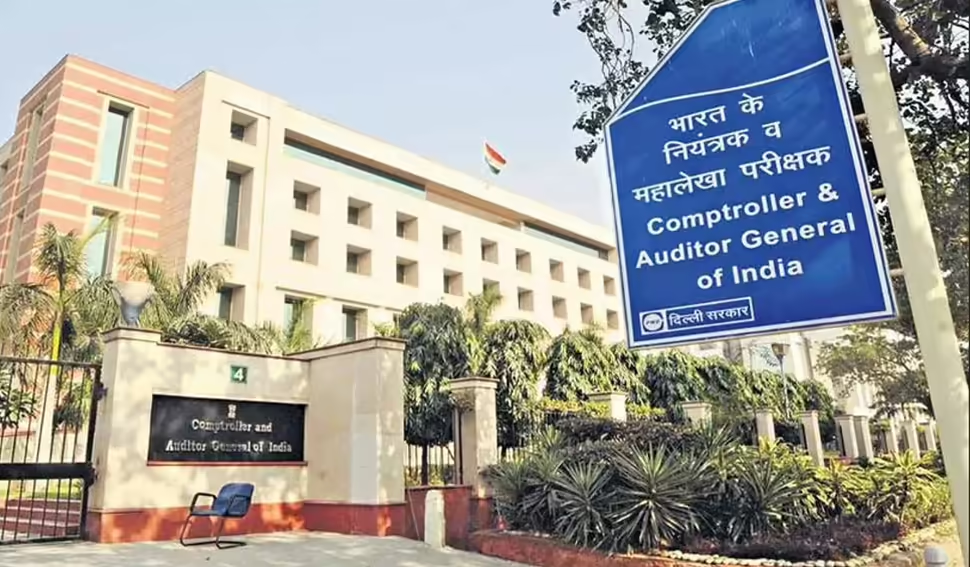Inadequate infra in DBT Cell in Assam, payments made to fake beneficiaries: CAG

The Direct Benefit Transfer (DBT), a major reform initiative of the Central government, has significant shortcomings in Assam, including inadequate IT infrastructure, double payments, and duplicate payments, according to the Comptroller and Auditor General (CAG) report.
The CAG report which was tabled in the state assembly in the last week, revealed major issues, such as inadequate IT infrastructure and a lack of a robust database to properly implement DBT schemes.
In Assam, the DBT initiative was launched with the establishment of a DBT Cell in August 2017. The DBT portal is hosted by the Department of Information Technology, while its onsite technical support is managed by the Finance Department, which serves as the nodal agency for DBT implementation in the state.
The system was designed to streamline the distribution of benefits from government schemes directly to the beneficiaries, ensuring transparency. there are currently 94 schemes registered under the DBT portal, managed by 17 departments. These schemes include a mix of central and state government programs aimed at delivering various welfare benefits directly to beneficiaries.
The CAG audit reviewed four DBT schemes in Assam for the period from 2017-18 to 2019-20. These included two Centrally-sponsored schemes, one Central sector scheme, and one state sector scheme: Pre-Matric Scholarship for SC, ST, and minority students and Deen Dayal Divyangjan Pension Scheme.
The audit examined the implementation of these schemes in five sampled districts, covering the role of 101 institute nodal officers in those districts. The findings revealed significant issues, such as fraudulent and duplicate payments, highlighting deficiencies in IT infrastructure and database management(
The CAG revealed that state DBT cell failed to establish an adequate IT infrastructure and a robust database necessary for the seamless implementation of various central and state schemes under the DBT system. This lack of infrastructure led to several inefficiencies, including duplicate and fraudulent payments, especially in schemes like the Deen Dayal Divyangjan Pension Scheme and Pre-Matric Scholarships.
During the 2018-19 to 2019-20 period, the CAG audit uncovered 2,424 cases where beneficiaries of the Deen Dayal Divyangjan Pension Scheme fraudulently claimed pensions in multiple districts.
The CAG audit revealed excess payments made to duplicate beneficiaries under two major schemes. An excess payment of ₹1.90 crore was made to 1,901 beneficiaries who claimed benefits in multiple districts under the Deen Dayal Divyangjan Pension Scheme (DDDPS). 451 students availed of the scholarship more than once, resulting in an excess payment of Rs 10.22 lakh under the Pre-Matric Scholarship for ST students.
It was also revealed that Rs 5.92 crore was fraudulently paid as a scholarship for hostel charges to students in 86 schools that did not have hostel facilities.
Similarly, Rs 2.98 crore was utilized in fake scholarship payments to 3,138 students who were not enrolled in schools.
In its report, the CAG recommended that the state DBT Cell should have all necessary components, including technical infrastructure, staff, and resources, to manage the DBT system effectively. The CAG also recommended to establish clear communication channels and coordination mechanisms between the state DBT Cell and various state government departments to streamline processes and address issues promptly.
The CAG further recommended for migration of the Deen Dayal Divyangjan Pension Scheme to a suitable IT platform aims to address issues of duplicate claims and improve the efficiency of pension distribution.
The CAF also suggested undertaking a thorough review of the Pre-Matric Scholarship Scheme for Minorities to prevent fraudulent claims.

Leave a Reply